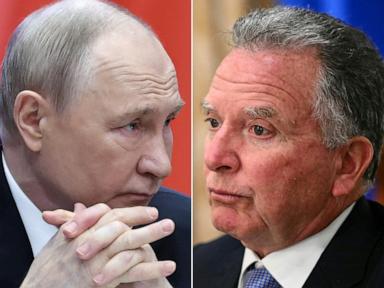UPDATE: Over 350 current and former VA doctors are sounding the alarm on a looming crisis in veterans’ healthcare, urging immediate action from the Department of Veterans Affairs (VA). In a poignant letter sent on October 18, 2023, to VA Secretary Doug Collins and congressional leaders, the group warns that recent staffing cuts and policy shifts threaten to devastate the care provided to millions of veterans.
The letter reveals an urgent situation as these healthcare professionals caution that outsourcing care to private sector facilities will undermine the VA’s healthcare system, overwhelm its budget, and adversely affect veterans’ lives. “We write to raise urgent concerns about proposed policies which will undermine VA’s healthcare system,” the authors emphasized, pointing to their firsthand experiences and evidence of ongoing harm to veterans.
Initially signed by more than 160 medical professionals, the letter’s support has surged to 350 signees, including doctors, psychologists, and nurses. Many have opted to remain anonymous for fear of retaliation from the VA, highlighting the gravity of their concerns.
In response to the rising discontent, VA officials, including press secretary Peter Kasperowicz, assert that these changes are designed to enhance efficiency, claiming that veterans are receiving better care now than under previous administrations. However, critics, including Senator Richard Blumenthal, have labeled their reassurances as dangerously misleading. “Courageously and powerfully, VA physicians are sounding an alarm—a five-alarm fire—on devastating damage to VA health care,” Blumenthal stated, calling for immediate attention to the doctors’ warnings.
The letter, titled the “Lincoln Declaration,” references President Abraham Lincoln’s commitment to veterans’ care and is a direct response to the VA’s increasing reliance on community care. This trend, the doctors warn, could redirect critical resources away from the Veterans Health Administration (VHA), potentially leading to facility closures and forcing veterans into less equipped and more costly private health systems.
Among the signatories, Dr. Dean Winslow, a retired Air Force colonel and current professor at Stanford University, expressed his commitment to this cause despite potential repercussions. “The VA has a special expertise in caring for veterans,” Winslow explained, emphasizing the importance of maintaining an integrated system specifically tailored to meet veterans’ needs.
Psychologist Joye Henrie, who operates a private clinic in Albuquerque, New Mexico, also highlighted concerns about the implications of privatizing veterans’ care. “Farming us veterans out to the lowest bidder is hardly in keeping with Lincoln’s promise,” she remarked, showcasing the emotional weight of this issue for those who have served.
Support is also coming from advocacy groups, such as the Iraq and Afghanistan Veterans of America (IAVA). CEO Kyleanne Hunter emphasized the need to uphold the promise of quality care for veterans, stating, “The VA is a public health system that centers on veteran care.”
As the situation develops, the fate of veterans’ healthcare hangs in the balance. Stakeholders and concerned citizens are urged to monitor further announcements from the VA and congressional leaders regarding these critical changes. The future of veterans’ health depends on the response to these urgent calls for action.
Stay tuned for more updates as this story unfolds.







































































